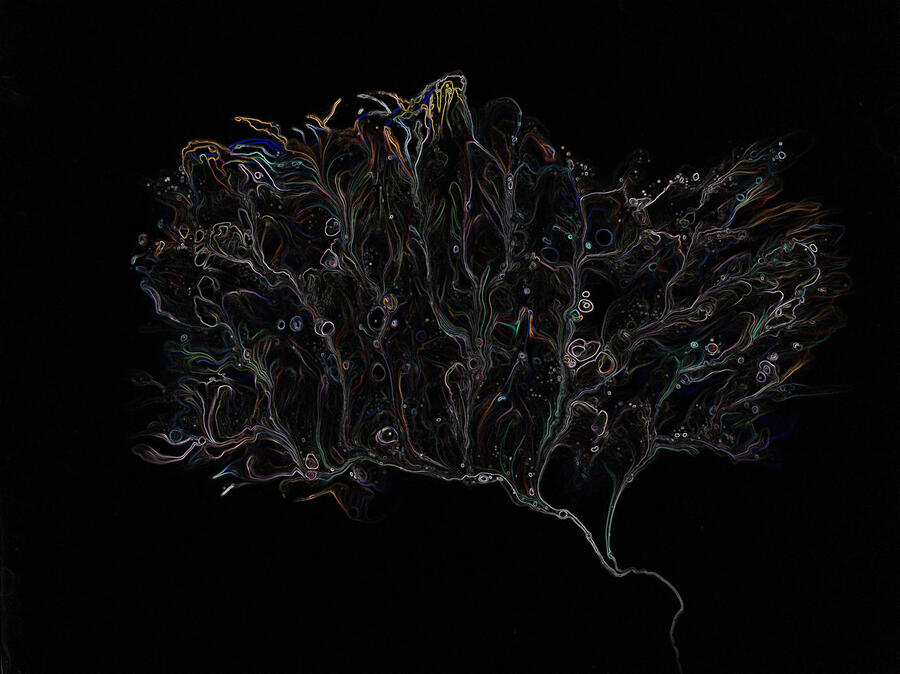
Heal | Renew | Grow
Dr. Swati Agarwal - RCI Approved
"You Don't Have To Struggle In Silence" - Demi Lovato
OUR APPROACH
We are here to help you
Consultation

30 minutes case discussion and treatment plan with licensed and experienced mental health professional
Assessment

Use of psychometric assessment tools to better understand a person's strengths and weaknesses, identify potential problems, emotional reactivity, and make recommendations for treatment/remediation.
Treatment

Online and In-person therapy with experienced psychologists empowering you with emotional strength and resilience. Begin the journey towards better mental healthcare and a happier you.
What we do:
• Child Counseling (Ages 5–14):
Help children understand and manage emotions, build resilience, and develop healthy coping strategies. We also address challenging behaviors, foster positive social interactions, and boost self-confidence.• Counseling for Teens and Adults (Ages 14+):
Provide tailored support for emotional well-being, stress management, and personal growth. These sessions are designed to empower individuals to navigate life’s challenges effectively.• Tailor sessions to address relationship challenges, improve communication, and resolve conflicts. The goal is to foster healthy and meaningful connections by working together on areas of concern and building strategies for improvement.• Design sessions to enhance relationships within families by exploring dynamics, addressing concerns, and resolving conflicts. These sessions aim to create a supportive environment and foster positive, lasting relationships.
DIFFERENCE WE MADE
TREATMENT METHODS
Mindfulness Based Cognitive Therapy
Stress Management
Couple & Marital Therapy
Relaxation Therapy
Anger Management
Cognitive Behavior Therapy
Behavior Therapy
Acceptance & Commitment Therapy
Dialectical Behavioral Therapy
Meta Cognitive Therapy
Schema Therapy
Grief Therapy
Motivation Enhancement
Hypnotherapy
Family Therapy
Sex Therapy
Eye movement Desensitization & Reprocessing Therapy
Exposure Response Prevention
Play Therapy
LETS FIGHT
Depression
Relationship Issues
Anxiety & Stress
Parenting Stress
Chronic Illness
Eating Disorders
Anger Outburst
Childhood Trauma/PTSD
Mood Disorders
OCD
Trauma & Grief
Family Conflicts
ADHD
Child / Geriatric Depression
OUR ACTIVITIES
Corporate Wellness Programs
Workshops (Corporate and Educational Institutions)
Psychological Counselling
Psychological Internship Courses
Book Your Session Now!
Therapy Sessions (In Person / Online) and are 100% private and confidential.
💳 Please make your UPI payment to UPI ID: a.swati.s@okicici

Contact Us
We will reach out to you right back
Office address :
Kolkata :
Emami City,
Jessore Road, Golpark
Kolkata - 700028
West Bengal - India
Email :
For information : info@aarogyama.com
For grievances : help.aarogyama@gmail.com
Business hours :
Monday to Friday : 10 AM to 6 PM
Saturday & Sunday : 10 AM to 5 PM
☎️ : +91-8287776689
Disclaimer : Please note that we are not a crisis intervention helpline. Should you have severe symptoms or have thought about harming yourself, please seek immediate medical help or call suicide prevention helplines such as :
Aasra 24x7 Helpline: 91-22-27546669
© Aarogyama. All rights reserved.
Thank you!
We will reach out to you right back.
Thank you for sending us a message.
Be proud of yourself for taking the first step :)
Mental Wellness Blogs by Dr. Swati Agarwal
Understanding Post-Traumatic Stress Disorder (PTSD) and Effective Treatments

Explore PTSD, its symptoms, and effective treatments. Discover how Aarogyama offers specialised therapies to help individuals overcome trauma and regain mental wellness.Emily's Story: Overcoming the Shadows of Trauma
Emily used to love fireworks. The vibrant bursts of color against the night sky filled her with joy and wonder. But after surviving a car accident last summer, everything changed. Now, every loud noise triggers a rush of panic and a flood of terrifying memories.What is Post-Traumatic Stress Disorder (PTSD)?
PTSD is a mental health condition triggered by experiencing or witnessing a traumatic event. Symptoms may include flashbacks, nightmares, severe anxiety, and uncontrollable thoughts about the event.Symptoms of PTSD :
(1) Flashbacks: Vivid memories of the traumatic event that feel like reliving it.
(2) Nightmares: Disturbing dreams related to the trauma, often recurring.
(3) Avoidance: Efforts to avoid reminders of the traumatic event, including places, people, or activities.
(4) Hyperarousal: Feeling on edge, easily startled, or having difficulty sleeping.
(5) Negative Thoughts and Mood: Feeling detached, guilty, or losing interest in previously enjoyed activities.Effective Treatments for PTSD
Therapy Options
Cognitive Behavioral Therapy (CBT)
CBT helps individuals identify and change negative thought patterns and behaviours related to the trauma. It focuses on developing coping strategies and gradually facing feared situations.Eye Movement Desensitization and Reprocessing (EMDR)
EMDR involves guided eye movements while recalling traumatic experiences. This therapy aims to reprocess traumatic memories and reduce their impact.Group Therapy
Group therapy provides a supportive environment where individuals with PTSD can share experiences, gain insight, and learn coping skills from others facing similar challenges.Medication
In some cases, medications like antidepressants may be prescribed to alleviate symptoms of PTSD, particularly when combined with therapy.Holistic Approaches
(1) Yoga and Meditation
Mind-body practices such as yoga and meditation promote relaxation and reduce stress, offering relief from PTSD symptoms.(2) Lifestyle Adjustments
Healthy lifestyle choices, including regular exercise, balanced nutrition, and sufficient sleep, contribute to overall mental well-being and can aid in managing PTSD symptoms.Aarogyama's Approach to PTSD Treatment
At Aarogyama, we specialize in tailored PTSD treatment plans. Our experienced therapists combine evidence-based therapies with compassionate care to help individuals reclaim their lives from the grip of trauma.Discover effective PTSD treatments and holistic approaches at Aarogyama. Our therapies include CBT, EMDR, and more to support trauma recovery and mental wellness.
Understanding Insomnia & Sleep Disorders: Causes, Symptoms, and Effective Treatments

Explore the causes, symptoms, and effective treatments for insomnia and sleep disorders. Discover how Aarogyama offers comprehensive therapies to improve sleep quality and overall well-being :(1) A Night of Struggle : A Tale of Insomnia
Imagine lying in bed, tossing and turning while your mind races with thoughts that refuse to let you sleep. Sound familiar? Many of us have experienced this frustrating battle with insomnia, yearning for the restful embrace of sleep. Let's unravel the mysteries of insomnia, shedding light on this common yet challenging condition.(2) What is Insomnia?
Insomnia goes beyond occasional sleeplessness; it evolves from sporadic restless nights to a persistent issue that disrupts daily life. It encompasses difficulty falling asleep, waking up frequently during the night, waking too early, and persistent daytime fatigue.(3) Signs of Insomnia :
Duration : Sleep difficulties lasting at least three months.
Distress and Impairment : Interference with daily functioning, causing significant distress.
Frequency : Occurrence at least three nights per week despite adequate opportunity for sleep.
Exclusion of Other Conditions : Not attributable to other sleep disorders, medical conditions, or substance use.(4) Types of Insomnia :
Insomnia is categorized into three types based on duration and recurrence:Episodic Insomnia
Lasting at least one month but less than three, triggered by specific events or circumstances.Persistent Insomnia
Lasting three months or longer, impacting overall functioning and quality of life.Recurrent Insomnia
Two or more episodes within one year, with intermittent periods of normal sleep.(5) Causes of Insomnia :
Insomnia can stem from personal traits, life events, lifestyle choices, emotional well-being, and cognitive patterns. These factors intertwine, influencing sleep quality and perpetuating the cycle of sleeplessness.Individual Factors : Genetics, stress levels, and overall health.
Life Events : Significant changes, work stress, or financial worries.
External Triggers : Light, noise, uncomfortable sleeping conditions.
Lifestyle and Behaviours : Inconsistent sleep schedules, excessive caffeine or alcohol consumption, screen time before bed.
Emotional Well-Being : Anxiety, depression, and stress.
Cognitive Patterns : Negative thoughts or fears about sleep.(6) Treating Insomnia :
Effective treatment involves a comprehensive approach addressing underlying causes and symptoms. Treatment modalities include :Pharmacological Therapies
Medications such as benzodiazepines or nonbenzodiazepines may be prescribed cautiously for short-term relief. However, dependency and side effects should be monitored.Psychological TherapyCognitive Behavioral Therapy for Insomnia (CBT-I)
CBT-I is a leading psychological treatment method, integrating cognitive therapy, relaxation techniques, and sleep hygiene education. It aims to modify behaviors and thoughts that contribute to sleep difficulties.Stimulus Control Therapy (SCT)
SCT helps re-establish the association between bed and sleep by regulating sleep environment and behaviors.Sleep Hygiene Education
Educational programs addressing sleep misconceptions and promoting healthy sleep practices.Relaxation Techniques and Mindfulness
Incorporating practices like progressive muscle relaxation and mindfulness meditation to reduce arousal and promote relaxation conducive to sleep.(7)Practical Tips for Better Sleep
Maintain a regular sleep schedule to regulate your body's internal clock.
Create a sleep-friendly environment that is dark, quiet, and comfortable.
Establish a bedtime routine to unwind before sleep.
Limit electronic device use before bedtime to minimize sleep disruption.
Avoid stimulants like caffeine, nicotine, and alcohol close to bedtime.
Incorporate regular physical activity into your daily routine, but avoid vigorous exercise close to bedtime.
Limit daytime naps and avoid them late in the day to preserve nighttime sleep quality.Conclusion :
Understanding the multifaceted nature of insomnia equips us to address its complexities effectively. By implementing these strategies and seeking professional guidance when needed, you can improve your sleep quality and overall well-being. Prioritizing sleep health is essential in managing both occasional sleeplessness and chronic insomnia, ensuring you wake up refreshed and ready to face each day.
Discover effective treatments and practical tips for managing insomnia and improving sleep quality at Aarogyama. Our comprehensive therapies, including CBT-I and sleep hygiene education, aim to restore restful sleep and enhance overall health.
Overcoming Social Anxiety: Strategies for Enjoying Festivals Without Loneliness

Explore effective strategies to overcome social anxiety and enjoy festivals without feeling lonely. Discover practical tips and techniques at Aarogyama to enhance your festival experience.Understanding Social Anxiety
Social anxiety can cast a shadow over festive occasions, making social interactions daunting and isolating. Many individuals experience overwhelming fear of judgment or embarrassment in social situations, which can hinder their ability to fully enjoy festivals and gatherings.Signs of Social Anxiety
(1) Intense Fear : Fear of being judged, criticized, or embarrassed in social settings.
(2) Physical Symptoms : Rapid heartbeat, sweating, trembling, nausea, and dizziness.
(3) Avoidance : Avoiding social situations or enduring them with intense distress.
(4) Negative Thoughts : Worrying excessively about upcoming events, replaying interactions, or fearing rejection.Strategies for Overcoming Social Anxiety at Festivals
Preparation and Mindset:
(1)Plan Ahead
Research the Festival : Familiarise yourself with the layout, events, and activities to reduce uncertainty.
Set Realistic Goals : Start with small, manageable social interactions and gradually challenge yourself.
(2) Shift Your Perspective
Challenge Negative Thoughts : Question irrational beliefs and replace them with more balanced perspectives.
Practice Self-Compassion : Be kind to yourself and acknowledge that everyone experiences nerves in social situations.Techniques for Managing Anxiety
(1) Deep Breathing and Relaxation
Practice Deep Breathing: Before and during social interactions, take slow, deep breaths to calm your nervous system.
Progressive Muscle Relaxation: Tense and relax each muscle group to release tension and reduce physical symptoms of anxiety.
(2) Cognitive Behavioral Techniques (CBT)
Exposure Therapy: Gradually expose yourself to feared social situations, starting with less intimidating scenarios.
Thought Restructuring: Challenge and reframe negative thoughts to reduce anxiety and improve self-confidence.Social Skills and Interactions
(1) Improve Social Skills
Practice Assertiveness: Assert your needs and opinions respectfully, enhancing your confidence in social settings.
Active Listening: Focus on listening to others attentively, which can alleviate self-consciousness.
Join Group Activities
Attend Workshops or Tours: Participate in structured activities where interaction is encouraged but not forced.
Volunteer: Help out at the festival to meet new people in a relaxed, purposeful environment.Lifestyle and Self-Care
(1)Prioritise Self-Care
Maintain a Healthy Routine: Get adequate sleep, eat balanced meals, and exercise regularly to support overall well-being.
Limit Stimulants: Reduce caffeine and alcohol intake, as they can exacerbate anxiety symptoms.Seek Support
Talk to a Therapist: Consider therapy or counseling to explore underlying causes of social anxiety and develop coping strategies.
Join Support Groups: Connect with others who understand your experiences and share similar challenges.# Conclusion
By implementing these strategies and seeking support when needed, you can gradually overcome social anxiety and enjoy festivals with greater ease and enjoyment. Remember, facing your fears and practicing self-compassion are key steps toward building confidence in social situations. At Aarogyama, we provide resources and guidance to help you navigate social anxiety and enhance your festival experiences.
Discover effective strategies to overcome social anxiety and fully enjoy festivals at Aarogyama. From preparation tips to relaxation techniques, empower yourself to embrace social interactions and make meaningful connections during festive occasions.
Anger Management: Controlling Your Emotions for a Healthier You

Learn effective anger management techniques to control intense emotions and improve your well-being. Discover triggers, symptoms, and therapeutic approaches at Aarogyama.Understanding Anger: A Natural Response
Anger is a natural response designed to protect us from perceived threats. However, when uncontrolled, it can lead to destructive behaviors and strained relationships.Signs You Need Anger Management
Recognize the signs of needing anger management:
- Physical reactions like increased heart rate and agitation.
- Emotional indicators such as anxiety, guilt, and resentment.
- Behavioral patterns like verbal or physical outbursts.How Anger Management Therapy Helps
Anger management therapy focuses on:
Identifying Triggers: Understanding what sparks anger and learning effective responses.
Changing Thought Patterns: Adjusting negative thoughts that fuel anger.
Improving Communication: Developing assertiveness skills to express without aggression.
Emotion Regulation: Learning coping mechanisms for anger-inducing situations.Causes of Poor Anger Management
Factors contributing to anger issues include:
Stress: General stress or specific triggers like finances or relationships.
Mental Health Conditions: Conditions like bipolar disorder or anxiety can exacerbate anger.
Substance Use: Alcohol or drug addiction can impair inhibitions, leading to uncontrolled anger.Dispelling Anger Myths
Myths about anger include:
- Anger equals aggression.
- Venting anger is therapeutic.
- Therapeutic ApproachesTherapeutic Approaches
Finding Triggers and Reactions:
Therapy helps identify causes, reactions, and impacts of anger on relationships.
Learning to Calm Anger:
Techniques include avoidance, distraction, and assertiveness skills to manage anger effectively.
Cognitive Restructuring:
Therapists help analyze and adjust thought patterns that contribute to anger, promoting healthier responses and emotional healing.# Conclusion: Seeking Help for Anger Management
Managing anger is crucial for personal and relational health. If you struggle with anger, seek professional assistance to regain control and improve your well-being. At Aarogyama, we provide comprehensive support and guidance through effective anger management therapies. Take charge of your emotions and live a more balanced life.
Mastering Time Management : Achieving Goals with Efficiency

Discover effective time management strategies to enhance productivity and achieve personal and professional goals. Learn about signs of poor time management and therapeutic approaches at Aarogyama.Understanding Time Management
Effective time management involves behaviors aimed at utilizing time productively to achieve goals. It enables individuals to plan their days efficiently, optimize task completion, and make the most of available time.Signs of Poor Time Management
Recognize signs of poor time management:
Procrastination: Delaying tasks due to fear, difficulty, or self-doubt.
Missing Deadlines: Constantly failing to meet deadlines due to inefficient planning.
Lack of Prioritization: Inability to prioritize tasks, leading to decreased efficiency.
Multitasking: Reduced effectiveness and increased errors due to task-switching.
Perfectionism: Spending excessive time on tasks, missing other deadlines.How Time Management Therapy Helps
Time management therapy focuses on:
Enhancing Productivity: Learning techniques to improve task efficiency.
Achieving Work-Life Balance: Balancing professional and personal commitments.
Reducing Stress: Managing anxiety and depressive feelings through structured time management.
Setting Goals: Establishing SMART goals to guide task prioritization and execution.Causes of Poor Time ManagementFactors contributing to poor time management include:
Lack of Planning Skills: Difficulty in translating ideas into actionable steps.
Poor Prioritization: Inability to prioritize tasks effectively.
Lack of Clear Goals: Absence of defined goals leading to aimless task execution.
Time Estimation Issues: Inability to accurately estimate task durations.Therapeutic Approaches
Cognitive Behavioral Therapy (CBT):
CBT addresses unhelpful thought patterns influencing time management. It helps in setting SMART goals, breaking tasks into manageable parts, and focusing on achievable steps.# Conclusion: Improving Time Management for Success
Effective time management is crucial for achieving personal and professional goals. By identifying signs of poor time management and seeking therapeutic assistance like CBT, individuals can enhance productivity, reduce stress, and achieve a balanced life. Visit Aarogyama to explore how our therapies can help you master time management and achieve your fullest potential.
How to Change Your Behaviors and Thoughts: A Guide to Personal Transformation

Discover effective strategies to transform behaviors and thoughts for personal growth and well-being. Learn practical tips and therapeutic approaches at Aarogyama.Understanding Behaviour and Thought Patterns
Behavior and thought patterns are deeply ingrained habits that influence how we perceive the world and interact with it. Changing these patterns requires awareness, effort, and effective strategies.Importance of Changing Behaviours and Thoughts
Changing behaviors and thoughts is essential for:
Personal Growth: Overcoming limitations and achieving goals.
Emotional Well-being: Managing stress, anxiety, and negative emotions.
Relationships: Improving communication and connections with others.Recognising Unhelpful Behaviours and Thoughts
Identifying unhelpful behaviors and thoughts is the first step towards change:
Behavioural Patterns: Procrastination, impulsiveness, avoidance, etc.
Thought Patterns: Negative self-talk, catastrophizing, perfectionism, etc.Common Challenges in Changing Behaviours and Thoughts
Challenges include:
Resistance to Change: Fear of the unknown or discomfort.
Lack of Awareness: Unconscious patterns that persist.
Self-Doubt: Belief that change is impossible or too difficult.Strategies for Changing Behaviours
Effective strategies to modify behaviors include:
Setting Clear Goals: Define specific, achievable objectives.
Creating New Habits: Start small and build gradually.
Utilizing Positive Reinforcement: Reward progress and successes.Cognitive Behavioural Techniques (CBT)
CBT is a proven therapeutic approach for behavior and thought change:
Identifying Negative Thoughts: Recognize and challenge irrational beliefs.
Behavioral Experiments: Test new behaviors to replace old patterns.
Mindfulness: Cultivate awareness of thoughts and emotions.Strategies for Changing Thoughts
Changing thought patterns requires targeted approaches:
Cognitive Restructuring: Replace negative thoughts with realistic, positive ones.
Mindfulness Meditation: Train the mind to observe thoughts without judgment.
Gratitude Practice: Foster a positive mindset by focusing on what's going well.Therapeutic Approaches to Behaviour and Thought Change
Professional therapies can provide structured support:
Dialectical Behavior Therapy (DBT): Emphasises mindfulness, emotion regulation, and interpersonal effectiveness.
Acceptance and Commitment Therapy (ACT): Focuses on acceptance of thoughts and commitment to valued actions.
Psychodynamic Therapy: Explores unconscious patterns influencing behavior and thoughts.Building Resilience and Persistence
Maintaining motivation and resilience during behavior and thought change:
Self-Care: Prioritize sleep, nutrition, exercise, and relaxation.
Social Support: Seek encouragement and guidance from trusted individuals.
Celebrate Progress: Acknowledge milestones and achievements along the way.Overcoming Setbacks
Strategies to bounce back from setbacks:
Learn from Mistakes: Analyze what went wrong and adjust strategies.
Practice Self-Compassion: Be kind to yourself during challenging times.
Stay Committed: Focus on long-term goals and stay persistent.Creating a Personalised Plan for Change
Steps to create a personalized plan:
Assess Current Behaviors and Thoughts: Identify specific areas for improvement.
Set SMART Goals: Specific, Measurable, Achievable, Relevant, Time-bound goals.
Implement Strategies: Choose techniques that resonate and commit to regular practice.
# Conclusion: Embracing Change for a Fulfilling Life
Changing behaviors and thoughts is a journey of self-discovery and growth. By understanding the importance of change, employing effective strategies, and seeking support when needed, individuals can cultivate positive transformations in their lives. Visit Aarogyama to explore therapeutic approaches and resources to support your journey towards personal well-being and fulfillment.
Do You Feel Shame About Being Single? Overcoming Social Stigma and Embracing Your Journey

Explore reasons behind feeling shame about being single, how to overcome societal pressures, and embrace your single journey with confidence. Learn valuable insights and tips at Aarogyama.Understanding Societal Expectations and Single hood
In today's society, being single can sometimes carry a stigma, leading individuals to feel societal pressures and internalize negative beliefs about their relationship status.The Pressure to Be Coupled
There is often a societal expectation that adulthood should include a romantic partnership. Many people feel pressure from family, friends, and media representations that being single is undesirable or indicative of personal failure.Internalised Shame: Where Does It Come From?
Internalized shame about being single can stem from various sources:
Comparison to Others: Seeing peers or siblings in relationships may lead to feelings of inadequacy.
Cultural Norms: Cultural expectations around marriage and family can influence how individuals perceive their own single status.
Personal Beliefs: Past experiences or beliefs about self-worth tied to relationship status can impact feelings of shame.Debunking Myths About Single hoodMyth: Being Single Means Something Is Wrong With You
Reality: Being single is a valid and normal relationship status. It does not define your worth or happiness.Myth: Single People Are Lonely and Unhappy
Reality: Happiness and fulfillment are not exclusive to being in a relationship. Single individuals can lead fulfilling lives with strong social connections and personal achievements.Embracing the Benefits of Being Single
Personal Growth and Independence
Being single offers opportunities for personal development:
Self-Discovery: Explore interests, hobbies, and goals without compromise.
Self-Reliance: Build resilience and independence in decision-making and life choices.Strong Social Connections
Single hood can foster meaningful relationships:
Friendships: Cultivate close bonds with friends and family members.
Community Involvement: Engage in social activities and networks that provide support and companionship.Overcoming Shame and Embracing Self-Acceptance
Self-Reflection and Acceptance
Reflect on personal values and goals:
Challenge Negative Beliefs: Identify and challenge internalized shame and negative beliefs about being single.
Practice Self-Compassion: Be kind to yourself and acknowledge that everyone's journey is unique.Setting Healthy Boundaries
Establish boundaries in relationships and social interactions:
Assertiveness: Communicate your needs and priorities confidently.
Authenticity: Embrace authenticity in expressing your feelings and desires.Seeking Support and Connection
Community and Resources
Connect with supportive communities and resources:
Support Groups: Join groups or forums where individuals share similar experiences.
Therapeutic Support: Consider counselling or therapy to explore feelings of shame and develop coping strategies.Embracing Your Single Journey
Cultivating Gratitude and Joy
Focus on the positives of single hood:
Gratitude Practice: Appreciate the freedom and opportunities that come with being single.
Mindfulness: Live in the present moment and savor life experiences.Goal Setting and Personal Growth
Set goals and aspirations:
Career Development: Invest in professional growth and achievements.
Personal Enrichment: Pursue education, hobbies, or travel experiences that enrich your life.# Conclusion: Embracing Self-Love and Confidence
Navigating societal pressures and internalized shame about being single is a journey toward self-acceptance and empowerment. By challenging myths, embracing personal growth opportunities, and seeking support when needed, individuals can embrace their single journey with pride and confidence. Visit Aarogyama to explore more insights and tips on enhancing your mental well-being and self-love.
Forgiveness... Easier Said Than Done: Understanding the Journey to Healing

Explore the complexities of forgiveness, its benefits for mental well-being, and practical tips to facilitate the forgiveness process. Learn valuable insights at Aarogyama.
What is Forgiveness?
Forgiveness is a complex psychological process involving letting go of resentment and the desire for revenge toward someone who has hurt or wronged you. It is a voluntary decision to release negative emotions and thoughts.The Challenges of Forgiveness
Forgiveness can be difficult due to various reasons:
Emotional Pain: The hurt caused by the offense may be deep and long-lasting.
Betrayal and Trust: Trust may be shattered, making it hard to reconcile with the offender.
Ego and Pride: Feeling justified in holding onto anger or resentment as a form of self-protection.Benefits of Forgiveness
Psychological Well-being
Forgiving others can lead to:
Reduced Stress: Letting go of negative emotions can lower stress levels.
Improved Relationships: Reconciliation can strengthen relationships and promote empathy.
Enhanced Mental Health: Forgiveness is linked to lower levels of depression and anxiety.Personal Growth
Forgiveness fosters personal development by:
Increasing Self-Awareness: Understanding emotions and motivations.
Promoting Resilience: Building inner strength to overcome adversity.
Cultivating Compassion: Developing empathy for oneself and others.Myths About Forgiveness
Myth: Forgiveness Means Forgetting
Reality: Forgiveness is about releasing negative emotions, not necessarily forgetting the offense. It involves acknowledging the hurt while choosing to move forward without resentment.Myth: Forgiveness Equals Reconciliation
Reality: Forgiveness is a personal process and does not always require reconciliation with the offender. It can occur even if the relationship does not resume.Steps Toward Forgiveness
Acknowledge Hurt and Anger
Recognize and validate your emotions:
Journaling: Write down feelings and thoughts to process them.
Therapeutic Expression: Express emotions through art, music, or therapy.Practice Empathy
Try to understand the perspective of the offender:
Reflection: Consider factors that may have influenced their actions.
Dialogue: Communicate calmly and assertively if reconciliation is possible.Letting Go
Release negative emotions and embrace healing:
Self-Forgiveness: Forgive yourself for any role played in the situation.
Mindfulness: Practice mindfulness to stay present and manage reactive emotions.Therapeutic Approaches to Forgiveness
Cognitive Behavioural Therapy (CBT)
CBT techniques for forgiveness include:
Cognitive Restructuring: Challenge negative thoughts and beliefs.
Behavioral Techniques: Practice forgiveness exercises and role-playing scenarios.Acceptance and Commitment Therapy (ACT)
ACT strategies focus on:
Acceptance: Acknowledge emotions without judgment.
Values Clarification: Align forgiveness with personal values and goals.Overcoming Barriers to Forgiveness
Set Realistic Expectations
Forgiveness is a process that takes time:
Patience: Be patient with yourself as you navigate emotions.
Persistence: Stay committed to the journey of healing.Seek Support
Connect with supportive resources:
Support Groups: Join communities of individuals undergoing similar experiences.
Therapeutic Guidance: Consult a therapist for personalized support and guidance.# Conclusion: Embracing the Journey of Forgiveness
Forgiveness is indeed easier said than done, yet its benefits for mental and emotional well-being are profound. By understanding the challenges, debunking myths, and adopting practical strategies and therapeutic approaches, individuals can embark on a transformative journey toward healing and inner peace. Visit Aarogyama to explore more insights and resources on forgiveness and emotional wellness.
The Secret to Success: Unveiling Key Principles for Personal Achievement

Explore the essential principles and habits that contribute to success in life and career. Learn practical tips and insights to achieve your goals at Aarogyama.
Defining Success
Success is a multifaceted concept that encompasses achieving personal goals, fulfillment, and prosperity in various aspects of life.Understanding Personal Goals and Aspirations
Identify what success means to you:
Career Goals: Advancement, recognition, financial stability.
Personal Goals: Health, relationships, personal growth.Key Principles for Success
1. Goal Setting and Planning
Setting clear, specific goals is essential:
SMART Goals: Specific, Measurable, Achievable, Relevant, Time-bound.
Action Plans: Break goals into actionable steps.2. Persistence and Resilience
Overcoming obstacles and setbacks:
Grit: Perseverance and passion for long-term goals.
Adaptability: Flexibility to adjust strategies when faced with challenges.3. Continuous Learning and Improvement
Investing in personal and professional development:
Skill Enhancement: Acquiring new skills and knowledge.
Feedback: Seeking feedback to refine performance.Habits of Successful Individuals
1. Time Management
Efficiently utilizing time:
Prioritisation: Focusing on important tasks.
Productivity Techniques: Time blocking, Pomodoro Technique.2. Positive Mindset and Attitude
Maintaining optimism and resilience:
Mindfulness: Being present and managing stress.
Gratitude Practice: Appreciating achievements and blessings.3. Networking and Relationship Building
Building strong connections:
Networking Skills: Establishing and nurturing professional relationships.
Collaboration: Working effectively in teams.Overcoming Challenges on the Path to Success
1. Fear of Failure
Embracing failure as a stepping stone to growth:
Risk-taking: Calculated risks for innovation and progress.
Learning from Mistakes: Extracting lessons from setbacks.2. Self-Doubt and Imposter Syndrome
Cultivating self-confidence and self-belief:
Affirmations: Positive self-talk and affirming beliefs.
Visualization: Mentally rehearsing success scenarios.Personal Development and Success
1. Emotional Intelligence
Understanding and managing emotions:
Self-awareness: Recognizing emotions and their impact.
Empathy: Understanding others' perspectives.2. Leadership Skills
Inspiring and influencing others:
Communication: Effective verbal and non-verbal communication.
Decision-making: Making informed and strategic decisions.The Role of Resilience in Success
Building Resilience
Developing resilience through:
Mindfulness Practices: Meditation and relaxation techniques.
Support Systems: Seeking guidance and encouragement from mentors.# Conclusion: Embracing Success
Success is not merely about achieving goals but also about personal growth, fulfillment, and contributing positively to the world. By adopting key principles, cultivating positive habits, and continuously learning and growing, individuals can unlock their potential and achieve lasting success. Visit Aarogyama to explore more insights and resources on personal development and achieving your goals.
Grass is Greener Syndrome: Understanding the Urge for Something Different

Explore the phenomenon of Grass is Greener Syndrome, its impact on relationships and decisions, and practical tips to navigate feelings of dissatisfaction. Learn more at Aarogyama.
What is Grass is Greener Syndrome?
Grass is Greener Syndrome (GIGS) refers to a mindset where individuals constantly believe that the grass (or life) is better on the other side. It involves feelings of dissatisfaction with one's current situation, often leading to a desire for change or something perceived as better.Signs and Symptoms of Grass is Greener Syndrome
Recognise common indicators of GIGS:
Persistent Dissatisfaction: Feeling that something crucial is missing despite external success.
Comparisons: Constantly comparing one's life, partner, or career to others.
Fantasy of Perfection: Belief that happiness lies in an idealized alternative.Causes and Triggers of Grass is Greener SyndromeUnrealistic ExpectationsExpectations set by societal norms or media portrayals:
Social Media Influence: Comparing curated images to real-life experiences.
Cultural Pressures: Beliefs about success, relationships, and achievements.Fear of Missing Out (FOMO)
Anxiety about missing out on better opportunities or experiences:
Career: Seeking a more fulfilling job or career path.
Relationships: Longing for a more passionate or compatible partner.Impact of Grass is Greener Syndrome
Relationship Challenges
Strain on current relationships due to:
Emotional Distance: Withdrawing emotionally in search of something better.
Commitment Issues: Difficulty in committing fully due to doubts and comparisons.Career and Personal Growth
Impact on professional and personal development:
Job Hopping: Continuously seeking new roles or career changes.
Unfulfilled Goals: Struggling to find satisfaction in achievements.Overcoming Grass is Greener SyndromeSelf-Awareness and ReflectionReflection: Evaluate the reasons behind feelings of dissatisfaction.
Gratitude Practice: Focus on appreciating current blessings and achievements.Communication and Commitment
Communication: Discuss feelings openly with trusted individuals or a therapist.
Commitment: Reaffirm commitment to personal growth and relationships.Strategies for Coping with Grass is Greener SyndromeMindfulness and Presence
Mindfulness: Practice being present and mindful of current experiences.
Acceptance: Embrace imperfections and challenges as part of personal growth.Goal Setting and Accountability
Goal Setting: Set realistic goals aligned with personal values and aspirations.
Accountability: Seek support from mentors or accountability partners.Seeking Professional SupportTherapy and Counselling
Therapy: Explore underlying issues and develop coping strategies.
Coaching: Work with a coach to set goals and navigate career transitions.Embracing Contentment and FulfilmentGratitude and Appreciation
Gratitude: Cultivate gratitude for current blessings and achievements.
Contentment: Find joy in the present moment and celebrate successes.# Conclusion: Finding Balance and Satisfaction
Grass is Greener Syndrome reflects a common struggle with dissatisfaction and longing for something perceived as better. By understanding its causes, recognizing signs, and adopting strategies for self-awareness and fulfillment, individuals can navigate these feelings and find contentment in their current lives. Visit Aarogyama for more insights and resources on personal growth and emotional well-being.
Internship Program
Internships at Aarogyama are different and unique in their own ways, as we aim to provide all the necessary knowledge and experience to students who wish to become future counsellors or psychologists. All our mentors are highly skilled and experienced and licensed with RCI (Rehabilitation Council of India). We bestow our efforts and time to teach and provide them with the best possible knowledge and experience. The advantage of Virtual Internship / Online Internship is that you would be able to gain the requisite experience and knowledge of in-person internship without a commute and from the comfort of your home and thus complete the requirements.
Internship TYPE
1. Counselling internship
Fees : Rs. 3300/-
Duration: 1 monthIn our counselling internships, we provide,General introduction to counselling- including an outline of different psycho-therapeutic perspectives and counselling approaches, the importance of counselling, types of counselling etc.
Case history taking, including MSE which is to assess the mental state and behaviour of the person being seen.
Psychological test administration & interpretation.
Report writing - documentation which contains the results of the testing and summary
Case history sessions from patients (5 sessions).
2. PSYCHOTHERAPY INTERNSHIP
Fees: INR 4500/-Duration: 1 monthIntroduction to psychological therapies
Clinical Interview and Case History taking skills including MSE
Screening tests - to detect potential symptoms of the disorders
Different kinds of Psychological Test administration & interpretation
Report writing - documentation which contains the results of the testing and summary
Case history sessions from patients (10 sessions)
3. Case-specific (on a particular disorder)
This internship is based on a particular disorder or issue, aspirants who wish to learn/enhance their skills in a specific disorder or areas like marital issues, depression, anxiety and many more other cases, can be at a benefit from this internship.Case History taking skills including MSE
Psychological Test administration, & interpretation
Screening tests - to detect potential symptoms of the disorders
Report writing - documentation which contains the results of the testing and summary)
Therapy sessions (Disorder specific)
Eligibility Criteria :
Beginner Counselors with Psychology/Social Work/Counseling Background
Psychology UG, PG and M.Phil Students
Social Work UG, PG and M.Phil Students
Counselling & Psychotherapy Students
Psychiatric Nursing Students
Students who are available to work from home immediately
Preferably students of psychology
Basic knowledge and interest in the subject
PhD students
Benefits :
Continuous mentoring and coaching by industries experts
Internship Certificate and Experience Letter
Quality students to have opportunities to work at Aarogyama
Placement Assistance
Letter of recommendations for further studies or work references
Platform to showcase your skills and talent
Practical and live experiences including followings,
Communication techniques ( mirror technique, Using the Senses, Master Emotional Triggers )
Therapeutic and intervention approaches ( autobiographical journaling, JPMR, Free association etc).
Taking case histories and designing case studies.
Developmental Studies and their application in understanding client behaviour
Designing Treatment Plans (Client-centred approach, Psychoanalysis, transactional analysis, REBT, CBT, Child regression therapy etc).
Contact Us
We will reach out to you right back. No spam. Promise :)
About Us
Welcome to Aarogyama, a premier mental health and holistic well-being platform. Our aim to enhance the quality of lives globally by addressing the diverse challenges individuals and families face in their emotional, behavioral, economic, social, physical, and spiritual well-being.At Aarogyama, we pride ourselves on our network of reliable, compassionate, and certified psychologists. Our experienced therapists provide a safe and supportive environment where you can openly discuss your concerns. We are committed to facilitating positive outcomes in the fewest possible sessions, ensuring efficient and effective therapy tailored to your unique needs.We employ a structured and scientific approach to assess your challenges, delving into your behavior, personality, and thoughts. Our focus extends beyond addressing outward symptoms; we aim to identify and resolve underlying issues to help you gain perspective, develop new skills, and lead a happier, more fulfilling life.Recent research underscores the clinical effectiveness, safety, and comfort of online counseling. At Aarogyama, we offer online and in person therapy options, allowing you to choose the mode that suits you best — whether it's in-person, voice calls or video sessions.Guided by veteran therapist, our platform is dedicated to providing the most feasible and effective treatments. Let us assist you in overcoming your issues and challenges, and embark on a journey towards a brighter, more hopeful future.
OUR MISSION
At Aarogyama, our mission is to continuously enhance mental healthcare for the public. We are dedicated to providing exceptional mental health treatment that inspires individuals to excel in their personal and professional lives. Our commitment is to create a safe, reliable, and cost-effective healthcare environment where individuals can thrive and achieve their fullest potential.
OUR VISION
Our vision at Aarogyama is to emerge as a leading platform for mental health and holistic healing, achieving recognition both nationally and internationally. We aim to provide comprehensive psychological wellness through a variety of services, including online assessments and in-person therapies.We aspire to:
Set the Standard in Mental Health Care: Establish ourselves as a benchmark for excellence in mental health services, offering innovative and evidence-based treatment modalities.
Promote Global Access to Quality Care: Expand our reach to ensure that individuals have access to cost effective high-quality mental health care, regardless of their location.
Foster a Culture of Continuous Improvement: Constantly evolve and enhance our services to meet the changing needs of our clients, utilising the latest advancements in psychological research and technology.
Through our commitment to these principles, we strive to create a world where mental health is prioritized and accessible to all.
Why Aarogyama
Quality
At Aarogyama, we are dedicated to delivering high-quality mental health services. Our processes and standard protocols are designed to ensure excellence and reliability. We prioritize evidence-based practices, rigorous training for our professionals, and a client-centered approach to provide personalized, effective, and compassionate care.
Competence
At Aarogyama, we pride ourselves on having highly qualified and certified therapists, supervised by an experienced management team. We ensure our therapists are well-trained and continuously educated, maintaining the highest standards of practice and care.
Compassion
At Aarogyama, our therapists are providing empathetic and adaptable support tailored to your needs. We prioritize accessibility, understanding, and personalized care to ensure effective and compassionate treatment.
OUR TEAM

Dr. SWATI AGARWAL
FOUNDER
Dr. Swati Agarwal, a Gold Medallist in Clinical Psychology from Rajasthan University, holds a Masters and M.Phil. in Clinical Psychology from Amity University (RCI license CRR# A63409). She is also a certified Hypnotherapist specializing in Clinical, Child, and Health Psychology.Formerly co-founder of a mental health and holistic well-being organization, Dr. Swati established "Aarogyama" in October 2018, dedicated to enhancing the quality of lives by addressing emotional, behavioral, and social well-being. She leads a team of experienced psychologists, focusing on comprehensive care.Dr. Swati's distinguished career includes over 6,500 therapy sessions, successfully treating diverse psychological issues. She has conducted workshops on parenting, mental health stigma, and suicide prevention for schools.A respected speaker, Dr. Swati has presented at international health seminars and appeared on global radio stations. Her blogs are featured in Times of India.Her strengths include a commitment to excellence, positive attitude, and strong interpersonal skills. Dr. Swati's mission is to destigmatize mental health and provide world-class care, advocating that mental well-being is integral to overall health.

Narbecca G. Momin
Narbecca G Momin is a licensed clinical psychologist with a diverse educational background. She holds a Diploma in Hypnotherapy from Bangalore, an M.Sc. in Clinical Psychology from CMR Institution of Management Studies, Bangalore, and a BA from St. Francis De Sales College, Bangalore.

NANDITA SHARMA
M.Phil - Clinical Psychology
With over 3 years of experience in mental health care settings, specialises in treating children, adolescents and adults in individual therapy sessions. She integrates mindfulness, cognitive-behavioral therapy, client-centric approaches, and other tailored strategies to address diverse psychological needs effectively.

PARIDHI JAIN
M.Phil - Clinical Psychology
With over 3 years of experience in mental health care, specialises in providing therapy for children, adolescents, and adults. Her approach integrates mindfulness, cognitive-behavioral techniques, client-centered therapy, and other effective strategies tailored to individual needs.
Refund & Cancellation Policy
Aarogyama endeavors to deliver counseling services with professionalism, always considering the needs and interests of our clients. In the event that a client expresses dissatisfaction with our services and requests a refund, Aarogyama has established specific conditions outlined in our "Refund & Cancellation Policy." Please refer to this policy for details regarding eligibility and associated terms and conditions. Please note that requests for refunds outside of these specified conditions will not be entertained.
Parties
The terms ‘You’ or ‘Your’ refer to You as a Registered User and the terms, ’We’, ‘Us’, ‘Company’, and ‘Our’ refer to 'Aarogyama'. 'Registered User' means any person who has availed or has chosen to avail services offered by Aarogyama by payment of the requisite fees.
Applicability
This Refund Policy applies exclusively to Registered Users. You may exercise your right to claim a refund in the following instances of defects or deficiencies on our part:
(1) Accounting errors, such as overcharging for sessions beyond those availed.
(2) Service defects, verified by Aarogyama following investigation, that render received services unsatisfactory or substandard.In cases where disputes arise regarding the presence of a defect or deficiency, Aarogyama's decision shall be deemed final.
This Refund Policy does not cover any issues other than those explicitly outlined above. If a reported service deficiency is remediable, Aarogyama reserves the right to re-perform the services instead of issuing a refund.
Cut-Off Date
All refund requests must be submitted within five (5) days from the date of service receipt. Regrettably, we are unable to process refunds beyond this timeframe.
Refund Process
To request a refund, please contact us via email at info@aarogyama.com with the subject line: "Refund". The validity and eligibility of your claim will be assessed upon receipt through these specified methods. Requests submitted through other channels will not be considered.Once your request is received, we will communicate the outcome and provide an estimated timeline for processing your refund. We aim to respond to refund requests within seven (7) working days of receipt.
Grievance
If you have any grievances, please write to help.aarogyama@gmail.com
Cancellation
When you schedule an appointment with a counselor, they dedicate their exclusive time, reserving it for your benefit. It is important to respect their commitment and the potential impact on other clients who could have utilized that time for their well-being. Sessions can be pre-booked in advance and rescheduled up to 24 hours before the scheduled appointment time.Requests to reschedule within 24 hours of the appointment or failure to attend will incur a charge equivalent to the non-refundable cancellation of the session. You will need to purchase new sessions to schedule another appointment.Arriving late by more than 15 minutes will be considered equivalent to cancelling one session.
Privacy policy
The Aarogyama appreciates and acknowledges that your privacy is very important. We take care to maintain customer confidentiality. We are committed to respecting the privacy and confidentiality of your information.Our privacy policy outlines the policies and procedures regarding the collection, use and disclosure of personal information from users. Please review this privacy policy carefully. Any changes we may make to our privacy policy in the future will be posted on this page. Please check back frequently to see any updates or changes to our privacy policy.
It is recommended that you do not use the website or the services of the website if any of the terms of this privacy policy are not in accordance with the applicable laws of your country.
Consent
By using the website, providing us with your personal information or by making use of the features provided by the website or by making a payment to Aarogyama, you hereby provide your consent to the collection, storage, processing, disclosure and transfer of your personal information in accordance with the provisions of this privacy policy.
You admit that you are providing your personal information at your own will. You also have the option not to provide us with the personal information sought to be collected. You will also have an option to withdraw your consent at any point, provided such withdrawal of consent is intimated to us in writing to info@aarogyama.com
If you do not provide us with your personal information or if you withdraw the consent at any point in time, we shall have the option to not fulfil the purposes for which the said personal information was sought and we may restrict your use of the website.
Personal Information
When using our services, we might collect some information that would include things like your name, phone number, gender, occupation, hometown, personal interests, credit card or other billing information, your email address, postal addresses, website URLs, certain health information (such as health care providers you have seen, your reason for scheduling an appointment with a therapist, your physical, physiological, psychological and/or mental health condition, your medical history and/or other such additional information required by the therapist which may include, but is not limited to, information of a clinical nature, previous health records, family background, etc., to enable the therapist to better understand your condition and tailor your appointments/sessions accordingly), and any other information or data that you provide when using the services. If you communicate with us by, for example, email, facsimile, video conference, phone and/or letter, any information provided in such communication may be collected as Personal Information (“Personal Information”).
The main reason we collect this personal information is to provide you with a safe, smooth, efficient and customised experience. The collection of personal information also enables the user to create an account and profile that can be used to interact with our experts. You always have the option not to provide some, or any, by either choosing not to become a registered user of the site, or else by skipping the particular feature of the website for which the personal information is being collected. You may change some of the information that you provide through your account page on the website.
Your information is used by the consultants to make better assessments about your condition and hence provide you with the most suitable counselling service. Your personal information is held safe by the consultant working with you and is normally not shared with other consultants. However, there may be certain occasions when the consultants collaborate to arrive at a better diagnosis and tailor the counselling sessions. In such cases, only minimal information as required is shared with others. We are dedicated to maintaining the privacy and integrity of your personal information. If you decide at any time that you no longer wish to receive certain communications from us, you can click on ‘Unsubscribe’ provided at the bottom of all communication and/or remove your phone number from your profile
We do not require personal data such as race, sexual orientation, political opinion or religion. We do not require identification such as a passport, PAN card or Aadhar card etc. Before online and telephone sessions begin, the customer telephone number, as well as brief details of what you feel you wish to talk about may be submitted. This information is accessed by the admin team and your selected therapist only.
The Aarogyama will always ensure basic information is gathered accurately. Your email address will be used as a form of contact in order to book and conduct sessions. If you use instant chat, video or telephone counselling, you will only be contacted via messenger or phone, by your request, at pre-booked times to have your session.
The selected therapist may choose to keep information about their client’s session time/date to stay organised. The information held by the therapist, as well as any session slot bookings such as dates and times that admin may have access to on the booking calendar, is deleted within 6 months.
Updating Personal Information
If your personal information changes, or if you need to update or correct your personal information or have any grievance with respect to the processing or use of your personal information, for any reason, you may send updates and corrections to us at info@aarogyama.com and we will take all reasonable efforts to incorporate the changes within a reasonable period of time. If your personal information is stored as part of your profile on the website, you can update your personal information from our website. Some personal information, such as your answers to online assessments cannot be updated or deleted once submitted. If you would like us to remove your records from our system, please contact us at info@aarogyama.com and we will attempt to accommodate your request if we do not have any legal obligation to retain such information.
Please note that we are required to retain certain information by law for record maintaining purposes (including but not limited to payment history, feedback, etc.), and there may also be residual information that will remain within our databases and other records, which, irrespective of any efforts by us to delete information, will not be removed from them.
Use of your Non – Medical Personal Information
Some of the personal information we collect from you is unrelated to your receipt of counselling services from therapists. Examples of how we may use your personal information include, but are not limited to, the following:
Identify and reach you;
Enable you to easily navigate the Services;
Resolve service and billing problems via telephone or mobile or email;
Assist you in scheduling appointments, remind you of upcoming or follow-up appointments, as well as cancelled appointments.
Troubleshoot technical problems;
Provide you with further information, products and services and newsletters;
Detect and protect us against error, fraud, and other criminal activity;
Better understand users’ needs and interests;
Personalize your experience;
Make disclosures as may be required under applicable law.
Improve our website in order to serve you better;
Allow us to serve you better in responding to your customer service requests;
Administer a contest, promotion, survey or other site feature;
Quickly process your transactions.
Use of your Medical Personal Information
We will at all times maintain the privacy and integrity of your protected health information (“PHI”). PHI is information about you that may be used to identify you (such as your name or address), and that relates to:
(a) Your past, present, or future physical or mental health or condition;
(b) The provision of health care to you;
(c) Your past, present, or future payment for the provision of healthcare.
In providing the services, we will receive and create records containing your PHI, and may use it to assist you in scheduling appointments, remind you of upcoming or follow-up appointments, inform you of cancelled appointments, bill amounts due for health care services provided by a therapist under the site, develop and conduct surveys with you to assist in providing you better services, conduct our management and administrative activities, and otherwise as stated in this privacy policy.
Log Data
When you use the website, our servers or servers of third-party services automatically record information that your browser sends (“Log Data”). This Log Data may include information such as your computer, Internet Protocol (“IP”) address, browser type, or the webpage you were visiting before you came to our services, pages of our website and services that you visit, the time spent on those pages, the information you search for on our services, access times and dates, and other statistics. We may use this information to monitor, analyse trends, administer the site, track your movement, gather broad demographic information for aggregate use, increase user-friendliness and tailor our services to better suit your needs.
Cookies
We also use “cookies” to collect information. A cookie is a small data file that we transfer to your computer’s hard disk for record-keeping purposes. We may utilise persistent cookies to save your user credentials for future logins to the services. Further, we may utilise session ID cookies to enable certain features of the services, to better understand how you interact with the site and to monitor aggregate usage by users of the site and web traffic routing on the site. Unlike persistent cookies, session cookies are deleted from your computer when you log off from the services and then close your browser. We may work with third parties that place or read cookies on your browser to improve your user experience. In such cases, by using the third-party services through our website, you consent to their privacy policy and terms of use and agree not to hold Aarogyama liable for any issues arising from such use. You can instruct your browser, by changing its options, to stop accepting cookies or to prompt you before accepting a cookie from the websites you visit. If you do not accept cookies, however, you may not be able to use all features or functionalities of the site.
External links
Our site may contain links to other websites (“Linked Sites”). The linked sites are not under the control of the company. We are not responsible for the content of any linked site, including, without limitation to, any link contained in a linked site, or any changes or updates to a linked site. We are not responsible for any form of transmission, whatsoever, received by the user from any linked site. We are providing these links only for convenience, and the inclusion of any such link does not imply endorsement by the website, of the linked sites or any association with its operators or owners including the legal heirs or assigns thereof.
On accessing the linked sites, you shall be governed by the terms of use, privacy policy and such other additional policies of the linked sites. You further acknowledge and agree that we shall not be responsible or liable, directly or indirectly, for any damage or loss caused or alleged to be caused by or in connection with the use of or reliance on any such content, advertising, products, services or other materials available on or through any linked sites or for any errors, defamatory content, libel, slander, omissions, falsehoods, obscene content, pornographic material, or any profanity contained therein.
Security
We employ administrative, physical, and technical measures designed to safeguard and protect information under our control from unauthorised access, use, and disclosure. When we collect, maintain, access, use, or disclose your Personal Information, we will do so using systems and processes consistent with industry standards in information privacy and security. None of the online video sessions is recorded. In spite of the security measures undertaken by us, we strongly discourage you from posting your Personal information in forums, comments or any other publicly accessible places on our website.
Confidentiality
Aarogyama maintains the confidentiality of the information disclosed during the personal consultation. Any information shared during the personal consultation is confidential, with certain exceptions where confidentiality may be breached. The case where confidentiality will be breached is if:
The expert or Aarogyama believes that there is a significant/ real/ imminent threat or risk to your health, safety or life or to the health, safety or life of any other person or the public;
Disclosure is required by law to any authority;
You have claimed health care insurance and the insurer requires information.
Except for the reasons outlined above, the personal information shared on Aarogyama will only be shared with others after permission has been granted by you orally or by way of email. All staff members and contracted third-parties of Aarogyama, including all Aarogyama professionals, employees, contracted professionals or trainees, are required to follow this confidentiality policy.
Third-Party Disclosure
Aarogyama does not sell or trade your personal information (including PHI) to third parties unless we provide you with advance notice. This, however, does not apply to any storage or transfer to and from website hosting partners and other parties who assist us in operating our website, conducting our business, or servicing you, as long as those parties agree to keep this information confidential. We may also release your information when we believe release is appropriate to comply with the law, enforce our site policies, or protect ours or others’ rights, property, or safety.
However, visitor information that is not personally identifiable may be provided to other parties for marketing, advertising, or other uses.
Persons Below The Age of 18
Our services are not directed to persons under the age of 18 years. We do not knowingly allow or solicit anyone under the age of 18 to participate independently in any of our services. Minors can however avail services under the consent of their parents/guardians (=>18 years of age)
Changes To Policy
Aarogyama reserves the right to change or remove any part of the privacy policy without notice or liability to any third party. In the event, there are significant changes in the way we treat your personal information, or in the privacy policy, we will display a notice on the websites or send you an email, so that you may review the changed terms prior to continuing to use the websites. As always, if you object to any of the changes to our terms, and you no longer wish to use the websites, you may contact us to deactivate your account. Unless stated otherwise, our current privacy policy applies to all information that Aarogyama has about you and your account. Using the services on the websites or accessing the websites after a notice of change has been sent to you or published on our websites shall constitute your consent to the changed terms.
Grievance Redressal
In accordance with Information Technology Act, 2000 and rules made thereunder, to address the grievances of the users, Aarogyama has set up a Grievance Redressal Forum. In case you are dissatisfied with any aspect of our services, you may contact our Grievance Redressal Office at info.aarogyama@.com We assure you a time-bound response not exceeding one month from the date of your complaint.
Jurisdiction
Jurisdictional policies of Aarogyama have been drafted in accordance with and compliance with Indian laws. Any and all disputes arising between the user and Aarogyama with regards to this policy, including the interpretation of the terms of this policy shall be subject to the exclusive jurisdiction of the courts at Kolkata, India.
Contact Information
Registered Address : Emami City, Jessore Road, Kolkata - 700028, West Bengal.
Phone Number: +91-8287776689
E-mail: info@aarogyama.com || help.aarogyama@gmail.com








